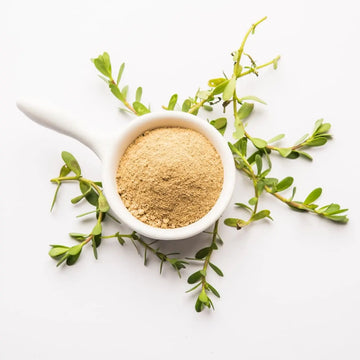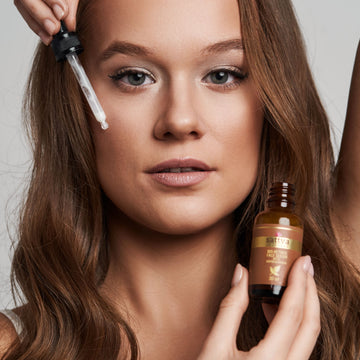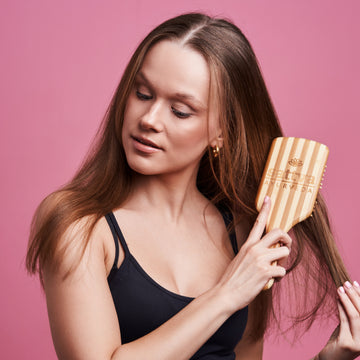Have you ever wondered what's in your hair dye? Most conventional hair dyes contain harmful chemicals that can lead to skin irritation, hair breakage, hair loss, and other serious health problems. That's why many people decide to look for alternative solutions, such as henna and herbal hair dyes.
What exactly is henna?
Henna is a natural hair dye that is extracted from the leaves of the Lawsonia inermis plant. This plant is commonly used in India and the Middle East as a natural hair and skin colorant. Henna is safe and extremely effective in coloring hair in various shades of brown, red, and orange.
One of the greatest benefits of using henna is that it does not damage the structure of the hair. On the contrary, henna can help improve the condition of the hair, thanks to its natural nutrients. Henna is rich in keratin, which strengthens the hair and prevents it from breaking. In addition, henna contains natural essential oils that have a soothing effect on the scalp and prevent skin problems such as dandruff.
If not henna, then what?
In addition to henna, there are also herbal hair dyes that contain natural ingredients such as indigo, cinnamon, walnut and others. Indigo, like henna, is obtained from the indigo plant. It is a natural dye that gives the hair a dark blue or black color. Cinnamon gives hair brown or copper shades, while walnut gives a warm, golden color.
Festival of benefits
The benefits of using herbal hair dyes are numerous, but we will mention three of the most important ones:
- First of all, these ingredients are natural and safe for health.
- Secondly, herbal hair dyes do not cause damage to the hair, but on the contrary - they often help to nourish and strengthen it.
- Thirdly, herbal hair dyes do not cause skin irritation and are suitable for people with sensitive skin.
Safety first
Before you start dyeing your hair with henna or herbal dyes, it is worth doing a skin sensitivity test. To do this, apply a small amount of the prepared mixture to a small area of the skin and wait a few hours. If there are no allergic reactions or skin irritations, you can start dyeing your hair.
Keep in mind that henna and herbal hair dyes do not provide as long-lasting a color as chemical dyes. The color gradually fades over a few weeks, meaning you will have to re-dye your hair more often than with conventional hair dyes. However, the health and environmental benefits of using natural hair dyes far outweigh these drawbacks.
An eco-friendly solution
In addition to the benefits for your hair and skin, using henna and herbal hair dyes also contributes to protecting the environment. Conventional hair dyes contain harmful chemicals that pollute the environment when rinsed out of your hair. Natural hair dyes, such as henna and herbal dyes, on the other hand, are biodegradable and do not harm the environment.
In conclusion, using henna and herbal hair dyes is a natural alternative to conventional hair dyes that provides many health, beauty and environmental benefits. Try natural hair dyes and see how many benefits they can bring to your hair and skin.
SATTVA hennas and plant dyes are ECOCERT COSMOS NATURAL certified.




